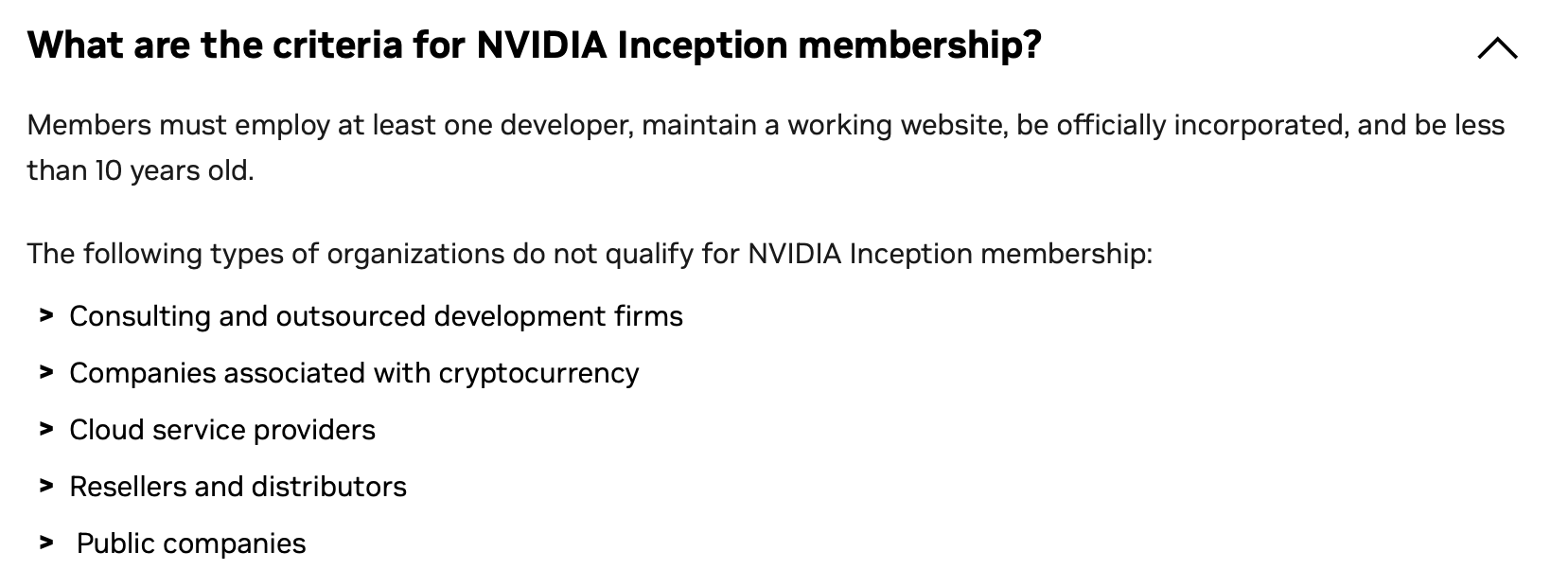
Nvidia’s Inception Program Shuns Crypto Startups
A recent update to Nvidia’s Inception program, a global accelerator program for promising startups, has sparked discussions within the crypto community. The program, designed to support companies younger than 10 years in all stages of funding, now explicitly excludes crypto-focused companies from its eligibility criteria.
According to Nvidia’s website, the program has a list of ineligible businesses, which includes consulting and outsourced development firms, cloud service providers, resellers and distributors, and companies already publicly traded. Interestingly, crypto companies now also fall into this category.
This change in policy seems to mark a shift in Nvidia’s stance on crypto startups. Just a few years ago, in 2018, the company welcomed Ubex, a startup combining blockchain and AI for digital advertising, into its Inception program. Nvidia’s spokesperson declined to comment on the reasons behind this change in eligibility policy.

Nvidia’s Involvement in Crypto
While the recent exclusion of crypto companies from Inception might seem like a complete departure from Nvidia’s previous interest in crypto, it’s important to remember the company’s past ventures in the space. Nvidia’s semiconductors, known for their power in data centers, have been widely used by crypto miners. In fact, the company previously explored various applications for its products within the crypto realm.
This decision comes at a time when Nvidia is facing challenges related to US export restrictions imposed on its H20 chip, specifically designed to comply with those restrictions. While less powerful than Nvidia‘s top-tier chips, the H20 could still enable significant AI advancements in China. This move highlights the complex geopolitical landscape surrounding AI technology and Nvidia’s involvement in it.
Implications for Crypto
The exclusion of crypto startups from Nvidia’s Inception program could have several implications. It might signal a broader trend of established tech companies taking a cautious approach towards the crypto space. Some argue that this change could hinder the development of innovative crypto-based projects relying on advanced computing power.
However, others believe that this exclusion doesn’t necessarily reflect a negative outlook on crypto itself. It might simply be a strategic move to prioritize other industries and technologies. Only time will tell how this change will affect the relationship between Nvidia and the crypto industry.


